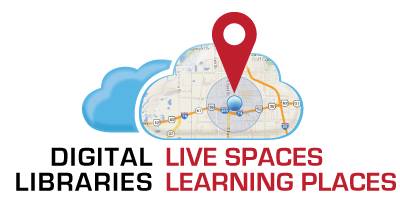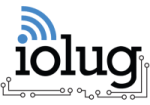Fall 2013 Conference

Digital Libraries: Live Spaces, Learning Places
November 1, 2013
Maker Mentality in the Learning Commons (View) (Audio .mp3)
What does a MakerSpace in an academic library look like? Chances are, it looks very much like a learning commons with a few tweaks. This program will look at the ways Penfield Library is infusing its commons with a maker mentality to bring out the creativity in our students.
Presenters: Emily Thompson, Suny Oswego Penfield Library
Digital Collections Made Easy: Exploring the Omeka Platform (Download)
Omeka is a free open source platform built to simplify the process of creating digital collections. This session will explore what Omeka is, how it works, why it is a great solution for libraries looking to build a digital collection online, and tips for librarians interested in deploying a digital collection of their own using Omeka.
Presenter: Bryan Brown, Indiana University Lilly Library
From Distance Education to Online Learning: Practical Approaches to Information Literacy Instruction and Collaborative Learning in Online Environments (Download)
The increasingly ubiquitous nature of online learning, both as a mechanism for course content delivery as well as a means for complementing or enhancing the traditional in-person classroom lecture, has necessarily changed pedagogical approaches. Educators are attempting to reimagine the old sit and absorb model of distance education that often hinders the interpersonal connections commonly experienced in traditional in-person courses. Current models of online learning can be viewed as a hybridization of the traditional classroom with the technological advancements of distance education delivery. From a pedagogical sense, then, how can online learning effectively foster student-centered, active learning, creative environments that encourage collaboration and discussion? Online learning librarians from Indiana University and Ball State University will discuss methods of instruction for online learners, using learning management systems and tools as well as online learning objects, as mechanisms for creating a platform for student investment and ownership in the learning process. From online forums and blogs to the creation of research guides and beyond, participants will be introduced to theoretical and practical approaches to improving online information literacy instruction. Additional discussion will focus on how these methods and approaches can enhance teaching, training, and peer collaboration within the library workplace.
Presenters: Michael Courtney, Indiana University and Sara Wilhoite-Mathews, Ball State University
Mistakes to Avoid When Creating an Online Tutorial Strategy (View)
The Harrison Librarians have been creating online video tutorials for over three years. In this session, well discuss some of the lessons we have learned, including choosing software, preparing scripts, shooting video, and choosing hosting sites wisely, We will also share some best practices we have adapted so that you can avoid some of the mistakes we have made along the way.
Presenters: Andrea Cohn and Sean Socha, Harrison College
Guide on the Side (Download)
For the past several semesters, librarians at Butler University have used online tutorials to introduce and supplement in-person library instruction. This fall, with technical support from PALNI, we’ve replaced screen-capture tutorials with interactive tutorials created using University of Arizona’s Guide on the Side software. In this session, we will share our experience with installing Guide on the Side, and creating and using tutorials. We’ll also share feedback we’ve received from faculty and students.
Presenter: Teresa Williams, Butler University
Information Literacy Integration & LibGuides: Framing Research as (Higher Order) Process
The now widespread use of LibGuides among academic librarians reflects a growing interest in moving beyond the one-shot and looking to sustainable models for information literacy integration. As numerous librarians have shown, course-specific library guides can be a powerful way to reach students as they actively engage in the research process. At the same time, some instructors express legitimate concern that LibGuides are an easy shortcut that prevent students from learning how to do library research independently. Reflecting on this reservation, workshop participants will explore ways to ensure that course-specific guides truly meet the learning goals and needs of a given class. Among the issues we will consider are higher order skills related to research and information use, process-oriented approaches, and instructional scaffolding.
Presenter: Andrea Baer, Indiana University- Bloomington
Beyond the Library: Creating a Mobile Campus Tour (Download)
The expansion of mobile device usage has created an exciting opportunity for libraries to develop services and resources to reach the ever growing group of mobile users. At Georgetown College we have seized this opportunity and developed several mobile friendly resources. We have developed the LRC application (available on iOS and Android devices), the LRC Catalog iOS application with an integrated barcode scanner, and a mobile website just to name a few. While these ventures have been successful, we wanted to reach campus users outside of the confines of the library. What emerged from that was the development of TigerTrax. TigerTrax is a historic and photographic guide to Georgetown College specifically designed for mobile devices. This presentation will focus on the initial development of TigerTrax, plans for future enhancements, and the collaboration from other departments on campus.
Presenter: Ben Rawlins, Georgetown College
Becoming Part of the LMS Sandwich: The Embedded Librarian in the Learning Management System (Download)
Students are often overwhelmed by the demands of online research, and do not take the time to visit the physical library or even use the library’s website. How can librarians connect with students and teach them digital literacy and information literacy skills? By collaborating with faculty and integrating themselves into the learning management system (LMS), librarians build a virtual presence in the learning nexus for face-to-face, online, and hybrid courses. Whenever students log into their LMS course sites to interact with faculty to work on research assignments, they may encounter an embedded librarian, familiar with their assignment and able to guide them to relevant electronic resources and library services. The embedded librarian shares links to library databases, research strategies, and screencasts to provide quick access for students. They answer individual student questions, keep pace with course developments, and create learning objects on demand. Join a team of embedded librarians as they describe their five-year outreach to faculty and students through their university’s learning management system. Learn how to market embedded librarianship to faculty, how to build inviting course content for students, and how to effectively collaborate in learning at your institution.
Presenters: Jessie Long, John Burke, and Beth Tumbleson, Miami University Middletown
Using Google Glass to Teach Privacy (Download)
(Audio .mp3)
Google Glass is Google’s latest consumer technology and is a wearable, head mounted computer that acts like a voice-activated, hands free smartphone. Hailed by some and reviled by others, Glass provides a peek into the future of information delivery and a route by which to discuss privacy and sharing. In August 2013, Google chose the presenter as a “Glass Explorer” one of approximately 8000 people using Glass. This presentation will demonstrate how she integrated Glass technology into instruction about privacy and sharing for Miami University students.
Presenter: Jen Waller, Miami University Libraries
